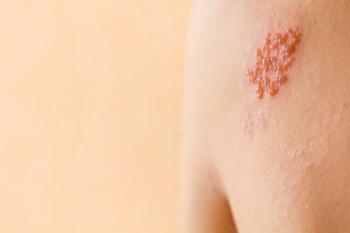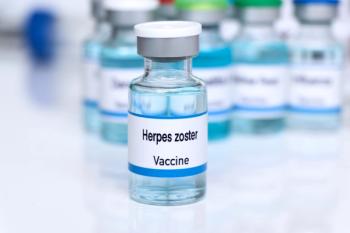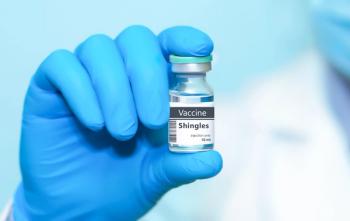
Shingles — But Also RSV — Vaccination Associated With Lower Dementia Risk
Patients had a lower risk of dementia if they were vaccinated against shingles or respiratory syncytial virus, but not if they only had a flu vaccine.
A new report is adding to the growing body of evidence that vaccination against shingles may also curb the risk of dementia.
The authors of the study,
Last year, corresponding author Paul J. Harrison, M.A., B.M.B.Ch., D.M., of the University of Oxford, and colleagues published
Harrison and colleagues said the findings from last year’s report led to two nonmutually exclusive hypotheses. One is that shingles itself leads to a higher risk of dementia, so the recombinant vaccine does a better job of preventing dementia because it does a better job of preventing shingles. The second is that the AS01 adjuvant vaccine system provides protection against dementia. They said previous research in mouse models has offered evidence for the latter possibility.
“Understanding the relative contributions of these possibilities would be important for translating findings into potential strategies for the prevention of Alzheimer’s disease and other neurodegenerative disorders,” they said.
In their new report, the investigators wanted to better understand the potential impact of the AS01 adjuvant system by looking at dementia rates in people who were given different types of AS01 adjuvant vaccines. They used electronic health records from more than 400,000 patients to explore dementia risk in people who received the AS01 adjuvant shingles vaccine, as well as those who received the AS01 vaccine for respiratory syncytial virus (RSV).
The team constructed three cohorts based on vaccination status: those who received only the shingles vaccine, those who received only the RSV vaccine, and those who received both. Those patients were then compared with matched controls who received the flu vaccine but not the shingles or RSV vaccines. The three RSV and shingles vaccine cohorts had mean ages ranging from 69.2 to 72.8 years, and each had a higher percentage of females than males.
Individuals were followed for up to 18 months or their last contact with their healthcare organization. Dementia diagnoses within three months of vaccination were excluded, as such patients may have already had undiagnosed dementia at the time of vaccination.
Protection from adjuvants
The findings showed that patients who received an AS101 vaccine had a significantly lower risk of being diagnosed with dementia compared to those who had only the flu vaccine.
The investigators used a metric called ratio of restricted mean time lost (RMTL) to mark risk of dementia, with scores below 1.0 indicating a lower risk. They found that patients who received both the RSV and shingles vaccines had a ratio of RMTL of 0.63.
Patients who had only the shingles or RSV vaccines had RMTLs of 0.82 and 0.71, respectively.
Harrison and his co-authors said the fact that patients receiving either the AS01 vaccine seemed to benefit suggests that it is the AS01 system that lowers dementia risk, though they said it is not clear how it achieves this effect.
“One possibility is that they independently reduce dementia risk by preventing respiratory infections, shingles, and RSV,” they wrote, noting that growing evidence suggests infections can heighten the risk of dementia. However, the authors said the fact that the benefit of vaccination seems to appear quickly argues against that hypothesis.
Another possibility, they said, is that AS01 protects against dementia via specific immunological pathways, such as via toll-like receptor 4 stimulation with monophosphoryl lipid A (MPL). MPL is a component of the AS01 system and has been linked with improvement in Alzheimer’s pathology in mice, they said.
Although the exact reasons for the apparent protection against dementia remain unclear, Harrison and colleagues said their findings underscore the need for more investigation to better understand the possible explanations.
Newsletter
Get the latest industry news, event updates, and more from Managed healthcare Executive.

























